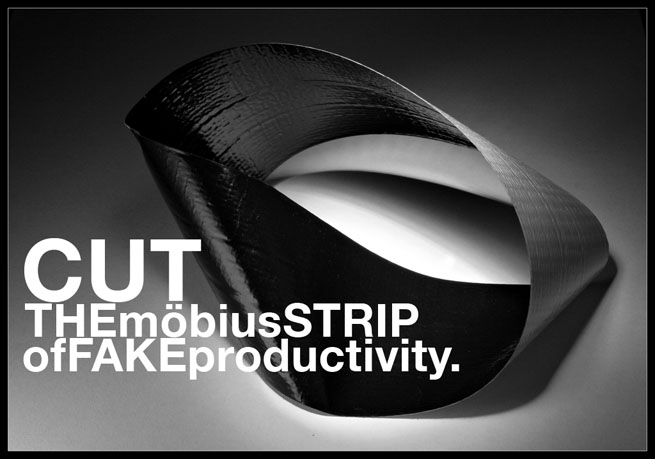Procrastination suffers from bad reputation. We see it as something natural and normal, yet ultimately undesirable. A lot of productivity evangelists and self-pronounced personal development warriors made things worse, declaring procrastination part of the axis of office evils. As such, it had to be fought, even if that meant committing war crimes against your inner idler. Sometimes, when reading about all these campaigns against procrastination, I am reminded of the fervor of the (not so) holy inquisition. It makes the lazier part of ourselves feel like a tormented freethinker in an age of productivity orthodoxy.
What puzzles me, though, is that many of the persecutors of procrastination cannot really know against what they are crusading. If they would, they couldn’t possibly be so productive, posting two times a day on their blogs, answering a million emails, and traveling from conference to conference to spread their enlightened words. Still, they claim to “understand” the alleged suffering caused by what Germans chicken-heartedly call “postponitis”, as if it was a more infectuous disease than the bubonic plague.
The Moebius Strip of Fake Productivity
Do you want to hear my take on all this? Bollocks! The real problem with procrastination is that people don’t know how to cope with it. And this comes to no surprise: We live in a culture of wannabe effectiveness and fake productivity, teaching even young children to make impeccable use of their time. Most 12 year olds in the suburbs of the USA seem to have a tighter schedule than I am ever going to have. Relaxing and doing nothing, they are taught, is a bad thing, just like using swear words or eating their finger nails.
As a result, people often fall into a trap I’d like to call the Möbius Strip of Fake Productivity: You don’t feel like you’re ready to work on any task that matters, but you don’t feel you’re allowed to do nothing, either. So you will just nervously fill up your day with minor tasks, getting nothing important done, but neither taking the time to relax and give your idle brain some freedom. Just like walking on a Möbius strip, you could go on and on and on like this until you reach retirement age.
The alternative? Embrace this lovely human quality called procrastination! Grab your scissors, cut the möbius strip, and decide to turn pro not only in your work, but also in procrastination. Both things have a place in our life, and both can be embraced.
The Decision between Work and Idleness
The next time you suffer from procrastination, why not take a step back and look at it from a distance? Instead of getting nervous and starting to do anything just to feel “busy” or “productive”, ask yourself the following questions:
- Is the task you’re procrastinating on relevant and important?
- Does it really have to be done?
- Does it have to be done by you?
If the answer to any of these questions is “no”, consider dumping the task right away. Let someone else do it, or just decide to cancel it all together.
If the answers are yes…
- Ask if you maybe just need a break.
- Ask if the task has to be done now, or if you should be doing it later.
- Ask if there is something of higher importance you feel like doing at the moment.
Procrastination is not an evil. It’s either your body or your brain sending you an important message, but you decide to ignore it and instead start responding to meaningless emails. Remember: It is only natural to feel exhausted sometimes. Also, your brain might just want to point you at something else you had to do but pushed aside earlier. Be observant of these things and find out what your procrastination really is about. If no important work needs to be done, don’t be shy to enjoy idleness.
How to pro-crastinate
Procrastination, like everything, takes some time to be perfected. The more you procrastinate, the better you get. All these self-help authors who haven’t done their 10.000 hours of it should just shut up.
Believe it or not, procrastination is a form of art, and it can be a pleasant use of your time. But it never will be, if you only feel remorse and qualms instead of taking it for what it is: An inherent part of work itself. Don’t spoil it by adding stupid tasks to your day, or it will just get worse the next time you get back at what you were initally wanting to do.
Here are some ideas on how to spend some great hours procrastinating like a pro:
- Take a nap.
- Look at the sky. (If you’re inside, go out.)
- Take a walk.
- Meditate a little, even if you don’t know how. (Just follow your intuition. You don’t need to attend a course for that.)
- Skribble. (Doodle, as other people say.)
- Do some yoga. (My friend Nate can teach you how.)
- Invent dinner. (Go get the ingredients, if necessary.)
Also, don’t be selfish! Share the love and procrastinate with others:
- Call an old friend or family member and talk for an hour.
- Upload the photos from your daughters birthday and send the link around.
- Have coffee and a chat with your boss.
- Recommend good reads on Twitter.
- Send me an email with a good story or an interesting question, or post it in the comments.
Psst! Liked this post? Then please share it on Twitter or recommend it to your friends. It would be a great help! Also, a big thank you to spacepleb for the awesome photo I used above!


Pingback: Luck Favours the Procrastinator
Pingback: Reason Why Productivity: A Simple Guide to Getting Things Done, Lasting Happiness and Saving the World
Pingback: Procrastination Week
Pingback: Writers Against Writing?